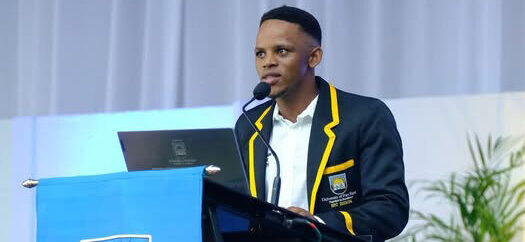The University of Fort Hare (UFH), once a beacon of academic excellence, is now grappling with what its student representative council (SRC) president, Aphelele Khalakahla, describes as an “observable institutional collapse”.
In a scathing letter to Tebogo Letsie, chairperson of the portfolio committee on higher education in parliament, dated August 13, Khalakahla paints a grim picture of a university plagued by governance failures, financial mismanagement and a
decaying infrastructure.
He proposed a series of urgent interventions to address the crisis, warning that failure to act could lead to intensified student unrest and irreparable reputational damage.
The grievances outlined in the letter are staggering. Residences are described as “uninhabitable”, with students forced to endure “persistent sewage spills, asbestos pipes, and broken infrastructure”. The university’s failure to pay electricity and water bills on time recently left students without basic services for an entire day.
“Students are forced into unsafe, undignified living and learning conditions,” Khalakahla wrote, adding that these issues have severely co promised the institution’s academic reputation.
He also highlighted the breakdown of student support systems, with over 23 residences lacking dedicated security. This had exposed students to theft, violence, and gender-based violence. “Student safety and mobility are compromised, and institutional support is unreliable,” the letter stated.
At the heart of the crisis is what Khalakahla described as “leadership and governance instability”. Critical leadership posts remain vacant, and the university’s council is accused of operating unlawfully.
The extension of the vice-chancellor’s term without consulting the senate or institutional forum was a particularly contentious issue. “The current council is not properly constituted; it operates as an interim body and does not meet the statutory requirement of 60% external members,” Khalakahla noted.
The SRC’s attempts to address these governance issues have been met with resistance.
When student leader Godfrey Ganya raised concerns about the vice-chancellor’s term extension, the matter was excluded from substantive debate during a council meeting.
“It appeared only as part of [the interim chairperson’s] welcoming remarks and was never substantively debated,” Khalakahla wrote.
Financial mismanagement has further eroded trust in the university’s leadership. In 2025, student governance was paralysed due to budgeting errors, with no separate allocation for student societies. Sports budgets have been mismanaged, leaving teams without kits, medical support, or supplements.
He alleged that funds meant for student affairs have been misallocated to the sports department, a claim that remains unaddressed.
The impact of these failures is far-reaching. “Student trust in financial governance has eroded, and essential development programmes are collapsing,” Khalakahla warned.
In the face of this institutional collapse, Khalakahla has proposed a series of urgent interventions. Khalakahla called on the portfolio to investigate the unlawful extension of the vice-chancellor’s term. He urged parliament to take a hands-on approach to address the university’s governance and financial crises. This includes restoring infrastructure to ensure safe and dignified living and learning conditions for students.
Khalakahla highlights the hostile environment at UFH, where dissenting voices are silenced through intimidation and targeted removal.
The SRC president calls for measures to protect whistleblowers from retaliation.
The SRC proposed the implementation of a turnaround plan with measurable timelines to address the university’s systemic issues.
“Reactive governance, chronic underinvestment, and fragmented accountability” must be replaced with proactive and transparent leadership, Khalakahla said.
Khalakahla confirmed that he sent the letter to the secretary of Letsie’s committee, Anele Nkabingese. Letsie confirmed receipt of Khalakahla’s letter.
University spokesperson JP Roodt said, “The University will respond in due course to the allegations which, in our view, are incendiary, insufficiently contextualised, and misleading”.




